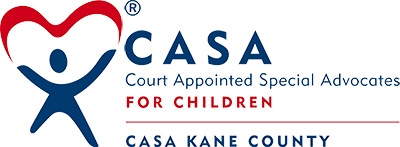Minimal Parenting Standards
Services Delivered by the Department of Children and Family Services
- Reports of suspected child abuse or neglect (including investigation)
- Adoptive placement services
- Adoption assistance
- Nonrecurring adoption expenses
- Adoption registry
- Licensing and monitoring foster homes, group homes, child care institutions, day care facilities, and day care homes
- Counseling or casework services
- Daycare services
- Emergency caretaker services
- Family planning services
- Healthcare services
- Homemaker services
- Information and referral services
- Placement services
- Subsidized guardianship
Minimum Parenting Standards:
A parent or other person responsible for the child’s welfare sees that the child is adequately fed; clothed appropriately for the weather conditions; provided with adequate shelter; protected from physical, mental, and emotional harm; and provided with necessary medical care and education as required by the law. A parent who has abandoned a child, deserted a child for three months, or failed to demonstrate a reasonable degree of interest, concern, or responsibility as to the welfare of a newborn child for thirty days after birth is deemed to have failed to have met the minimum parenting standards, unless the parent has arranged for the child’s care in the home of a relative who is willing and capable of assuming responsibility for the child. In addition, a parent who Is addicted to alcohol, or who is a drug addict, as defined in Section 1-103 of the Illinois Alcoholism and Other Drug Dependency Act [20 ILCS 305/1-103] and who has consistently failed to cooperate in a rehabilitation program for a period of at least 12 months is deemed to have failed to have met the minimum parenting standards unless the parent has arranged for the child’s safety and well-being despite the parent’s addiction.
DCFS Consent Decrees
Apply to State of Illinois, affect how the Department operates
- BH vs. Suter (1991). Required Department to make massive reforms throughout the Department, from lowering the overwhelming caseloads for each worker to providing new healthcare programs for Department children. Proposed Supplemental Order: (1) New standard for substantial compliance; (2) Five outcomes to be met by Department: protection, preservation, substitute care, reunification, and permanency; (3) Research center; (4) Reforms of improving caseworker skills, improving options for special need children, and continuing community based services through Local Area Networks (LANS); and (5) Six more years to meet substantial requirements.
- Bates (1991). Called for weekly visitation between parent and child unless documented that such visitation would not be in child’s best interest. Also, visits to increase and eventually be in parents’ home unless documented not in child’s best interest. Visits to begin within two weeks of Department appointed as temporary custodian.
- Aristotle P (1994). Department must make reasonable effort to place siblings together unless not in their best interest to do so. If placed apart, siblings must visit at least twice per month.
- Burgos (1997). Required Spanish speaking children be placed with Spanish speaker foster parents and Spanish speaking clients receive services/documentation in Spanish. Also, Department must provide interpreters for Cook and Old Aurora Region.
- Hill (1994). Established position of Teen Parent Coordinator to develop programs for pregnant and parenting teens. Also, parenting wards of DCFS to be placed with baby unless there are safety concerns.
- Norman (1991). Prohibited removal of children because of the living circumstances of the family unless such conditions cause “imminent danger to the child’s life or health.” Cannot remove child because parent resides in shelter, with friends or relatives, in housing with building code violations, or in housing that is too small, unless conditions present “imminent danger to the child’s life or health.” DCFS must make reasonable efforts to keep child with family through cash assistance and housing referrals. Also applies to return home of child.
- Reid (1992). Department must make reasonable efforts to identify potential relatives as caretakers and give them priority consideration.
NB: There are several other consent decrees that apply to Cook County wards only.
Department Service Goals
The Department provides, directly or through purchase, a number of services for children and families, which are individually planned to meet the needs of each child and family. These services are directed toward four service goals:
- Family preservation
- Family reunification
- Adoption or attaining of a permanent living arrangement
- Youth development.
When family preservation is the goal, services are directed toward ensuring the children’s development, safety, and well-being in the home of their family and preventing placement of children away fromt heir family. Services may include:
- Counseling or advocacy
- Emergency caretaker
- Homemaker
- Day care and development
- Family planning
- Parent education
- Self help groups
- Emergency family shelter
- Intensive family preservation services
- Other placement prevention services
- Referral for substance abuse treatment services
- Referral for financial assistance
- Referral for housing assistance or housing advocacy
- Referral for legal services.
When family reunification is the goal, services are directed toward returning the child to his/her parent’s or private guardian’s home. Family reunification services are directed toward helping the children’s parent(s) or private guardian(s) achieve minimum parenting standards and ensuring their safety and well-being upon return home. Services may include:
- Counseling/advocacy
- Homemaker
- Day care and child development
- Foster family home care
- Relative home care
- Residential care
- Family planning
- Parent education
- Intensive family preservation services
- Intensive preservation services
- Referral for substance abuse treatment services.
When adoption or attainment of a permanent living arrangement is the goal, services are directed at securing a new legal status in a permanent living situation for children who cannot return to their legal families. A goal of permanent living arrangement means that the child is to remain with a relative or foster family permanently and the Department intends to transfer legal guardianship to the family. Services may include:
- Counseling
- Adoption
- Relative home care
- Foster family home care
- Intensive family preservation services.
When youth development is the goal, services are directed at helping youth live independently or assisting unmarried youth with planning for the birth or care of their child. Such services may be provided by the Department to:
- Youth 15 years of age or older for whom the Department has legal responsibility, to help them live independently of adult caregiver supervision and achieve economic self-sufficiency; and
- Youth who are high school graduates and have been awarded scholarships in accordance with the Children and Family Services Act [20 ILCS 505]; and
- Unmarried pregnant youth for whom the Department has legal responsibility; and
- Unmarried pregnant youth under 18 for whom the Department is not legally responsible.
Click here to download DCFS Minimal Parenting Standards PDF

